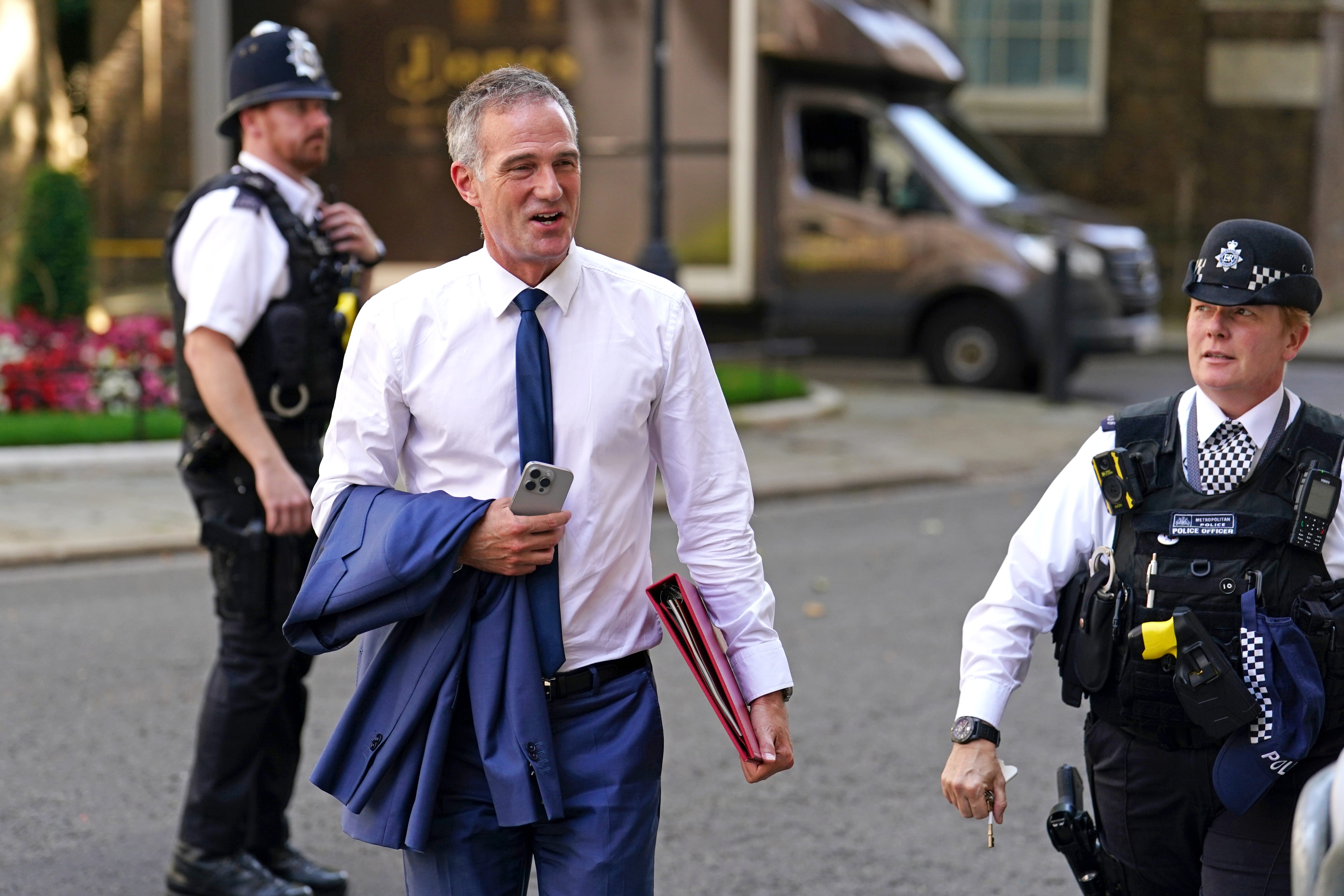People spreading hate online should have ‘nowhere to hide’, says minister
Peter Kyle said he had met representatives from social media giants on Monday.

Your support helps us to tell the story
From reproductive rights to climate change to Big Tech, The Independent is on the ground when the story is developing. Whether it's investigating the financials of Elon Musk's pro-Trump PAC or producing our latest documentary, 'The A Word', which shines a light on the American women fighting for reproductive rights, we know how important it is to parse out the facts from the messaging.
At such a critical moment in US history, we need reporters on the ground. Your donation allows us to keep sending journalists to speak to both sides of the story.
The Independent is trusted by Americans across the entire political spectrum. And unlike many other quality news outlets, we choose not to lock Americans out of our reporting and analysis with paywalls. We believe quality journalism should be available to everyone, paid for by those who can afford it.
Your support makes all the difference.Ministers will back social media firms if users who spread misinformation “have nowhere to hide”, the Technology Secretary has said.
Peter Kyle confirmed in a statement that he had met representatives from social media giants on Monday amid fears that posts to online forums are fuelling violent disorder.
His meetings followed several days of clashes between anti-immigration demonstrators, police and counter-protesters, during which buildings have been damaged including Southport Islamic Society Mosque, Spellow Lane Library Hub in Liverpool, a Citizens Advice office and next-door police station in Sunderland, and a Holiday Inn Express in Tamworth, near Birmingham.
I expect platforms to ensure that those seeking to spread hate online are not being facilitated and have nowhere to hide
Social media has come under scrutiny from politicians and journalists, and Home Secretary Yvette Cooper told BBC Radio 4’s Today programme on Monday: “You can’t just have the armchair thuggery or the people being able to incite and organise violence and also not face consequences for this.”
Elon Musk, boss of X, formerly Twitter, has faced criticism from Downing Street after the billionaire posted “civil war is inevitable” to the platform on Sunday.
Mr Kyle said in a statement: “I have been clear it is unacceptable that people are using social media to cause damage, distress and destruction in our communities.”
The Cabinet minister confirmed he had met representatives from TikTok, Facebook’s parent company Meta, Google and X “to make clear their responsibility to continue to work with us to stop the spread of hateful misinformation and incitement”.
The statement continued: “There is a significant amount of content circulating that platforms need to be dealing with at pace.
“Different companies take different approaches and I expect platforms to ensure that those seeking to spread hate online are not being facilitated and have nowhere to hide.
“Where they have acted, they have my full backing and the support of teams across Government, who have been working round the clock to do this.”
Prime Minister Sir Keir Starmer’s official spokesman was asked about Mr Musk’s post to X.
“There’s no justification for comments like that,” the spokesman replied.
“We’re talking about a minority of thugs who don’t speak for Britain.”
Government officials are also working to crack down on misinformation and activity from automated bots, he added.
“Clearly we have seen bot activity online, much of which may well be amplified with the involvement of state actors amplifying some of the disinformation and misinformation that we’ve seen.
“And that is something that the National Crime Agency and Department for Science, Innovation and Technology are looking at in relation to what we’ve seen online. I obviously can’t get into more detail than that, but it is clearly something that is being looked at.”
The official declined to say which states may be involved, but added that it “is clearly something that is being looked at”.
After chairing a Cobra emergency meeting on Monday morning, the Prime Minister said: “The criminal law applies online as well as offline.”
Journalists have examined social media’s role in violent disorder over recent weeks, which has been framed by Tommy Robinson, the former English Defence League leader whose real name is Stephen Yaxley-Lennon, as a protest against the murder of three children in Southport, Merseyside.
The Times published an in-depth look at fake claims that the murder accused was a man named “Ali Al-Shakati” who “came to the UK by boat last year”.
It later emerged that Axel Rudakubana, a 17-year-old from Lancashire who was born in Cardiff, had been charged with the murders.
BBC Verify established a “clear pattern of influencers driving a message for people to gather for protests, but there is no single organising force at work”, while Sky News alleged far-right groups began reposting false claims about the suspect being “a Muslim immigrant” on the messaging app Telegram, which made it on to X and were amplified by influencers like Andrew Tate, who has more than nine million followers.
Sky’s reporters added that “posters calling for a protest to take place in Southport on Tuesday July 30 began circulating widely”, including on TikTok.